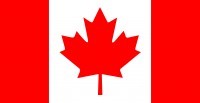Event Details
Date
June 28, 2016
Time
6:00AM-9:30PM
Location
Sherrington, St. Clotilde & Napierville Region of Quebec (see details below)
Cost
$75.00
(additional attendee $75.00 ea.)
Host
Cornell Vegetable ProgramEVENT HAS PASSED
ENYCHP Canada Farm Tour
June 28, 2016
Please join us for an educational bus tour of several Canadian farms in Quebec
Departure: 6:00am from Albany, NY
*Pick-up stops will be planned for Saratoga, Glens Falls & Plattsburgh as needed (Please contact Abby Henderson (518) 746-2553 to request a pick-up site)
Return: 9:00-9:30pm Arrive in back in Albany, NY
Cost: $75 (includes bus fare, lunch and a light dinner)
Stops: Sherrington, St. Clotilde & Napierville Region of Quebec
All those attending must have a valid passport or enhanced drivers license
Tour Highlights:
Vert Nature
http://vegpro.com/en/our-farms/
Vert Nature grows over 2000 acres in its Quebec location. It not only cultivates baby lettuces, spinach and brassicas, but also Iceberg and Romaine lettuce, carrots and onions. It has become a real hub for research and development and more than 300 new varieties are tested each year.
Univerco
http://www.univerco.com/en/home/
Univerco Conception Fabrication manufactures custom vegetable production equipment
Les Serres Lefort
http://culturevog.com/en/serres-lefort/
With over 300 greenhouses and plans to increase to 500, Les Serres Lefort grows nearly 70% of Quebec transplants for outdoors farmers
Also: the two farmers who helped coordinate this trip will join us on the bus once in Canada to answer questions and explain more about what we are seeing: Denys van Winden and David Gillespie.
Please Contact Amy Ivy, with any questions: 518-561-7450, adi2@cornell.edu
All those in need of an alternate pick up location, or special need (including dietary) should contact Abby Henderson at (518)746-2553/ aef225@cornell.edu
Registration and Payment due by Monday, May 23rd
Bus Tour Flier (PDF; 1328KB)



































